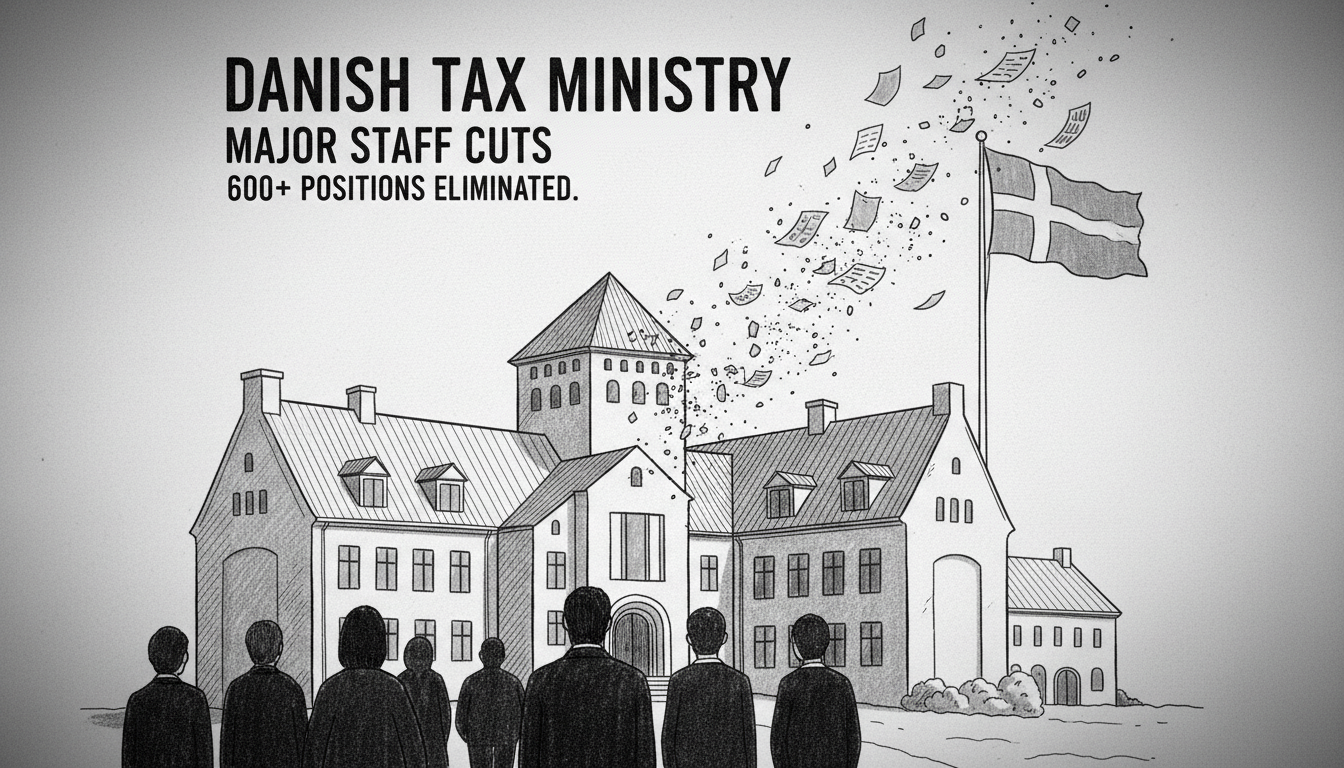The Danish Tax Ministry revealed plans for substantial workforce reductions across six government agencies this week. Officials confirmed between 610 and 640 positions will be eliminated as part of broader public sector reforms. This restructuring responds to significant budget constraints facing Denmark's welfare system.
The affected agencies include Tax Administration, Motor Vehicle Agency, Debt Management, Customs Agency, Development and Simplification Agency, and Administration and Service Agency. Ministry representatives described these cuts as necessary adaptations to changing financial realities. They emphasized the need to allocate resources where they provide maximum public benefit.
These staffing reductions form part of a long-term government efficiency program. The initiative aims to streamline bureaucratic processes across Danish public institutions. Ministry officials stated the goal involves limiting state bureaucracy while maintaining essential services.
This development raises important questions about Denmark's social policy direction. How will these cuts impact service delivery for Danish residents and international communities? Copenhagen integration services often rely on these administrative bodies for processing documentation.
Danish municipalities have faced similar restructuring in recent years. The current announcement represents one of the largest single workforce reductions in recent memory. Previous efficiency measures typically involved gradual attrition rather than immediate layoffs.
The timing presents particular challenges for Denmark's immigration policy implementation. These agencies process residency applications, tax registrations, and vehicle documentation for newcomers. Service delays could affect integration outcomes for recent arrivals.
Statistics Denmark reports approximately 38% of immigrants from non-Western countries were employed in recent years. Efficient administrative processing remains crucial for labor market integration. Any slowdown in document processing could indirectly affect these employment figures.
Community leaders expressed concern about potential service impacts. One Copenhagen integration advocate noted these agencies provide essential first-point-of-contact services. They help newcomers navigate Denmark's complex bureaucratic landscape.
The ministry maintains these cuts won't compromise core services. Officials promise to implement smart digital solutions to maintain efficiency. They point to Denmark's existing digital infrastructure as a foundation for streamlined operations.
This situation reflects broader tensions within Scandinavian welfare models. Nordic countries balance comprehensive social services with fiscal responsibility. Denmark's current approach suggests prioritizing budgetary constraints over bureaucratic expansion.
International observers should watch how these changes affect Denmark's reputation for efficient governance. The country typically ranks high in global government effectiveness indexes. Maintaining this position while reducing staff presents a significant operational challenge.
What comes next for affected employees and service users? The ministry plans to implement these changes through voluntary departures where possible. Remaining staff will need to adapt to new workflows and potentially increased workloads.
Social centers across Denmark may face increased demand as residents seek alternative assistance channels. These community hubs already help navigate public services. They could become even more crucial during this transitional period.

